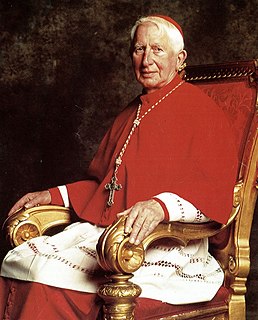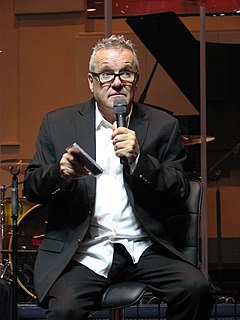A Quote by Colman McCarthy
Forty-one rules aren't so many - St. Benedict had 73 to keep the brethren on the straight and narrow.
Related Quotes
I no longer wield the power of the office for the government of the church, but in the service of prayer I remain, so to speak, within St. Peter's bounds. St. Benedict, whose name I bear as pope, shall be a great example in this for me. He showed us the way to a life which, active or passive, belongs wholly to the work of God.
I have a slight controversy with the Dogme brethren because I've been saying that rules are to be interpreted; not that I haven't followed the rules, because I don't see the point of submitting yourself to a set of rules if you don't follow them. But having said that, it is always a lot of interpretation.
In general, the straight line of a joke sets up a premise, an expectation. Then the funny ending - the punch line - in a sense contradicts the original assumption by refusing to follow what had seemed a reasonable train of thought. Many jokes involve that simple matter of leaping outside what had appeared to be the rules of the game at the moment.
It's easier for our brains to have a list of rules and say, "If we keep these rules, we're in, and if we don't keep these rules, we're out." The problem with grace is that it doesn't play by the rules. It covers sin, and it washes away shame. It releases you from self-hatred. You then realize, through grace in Jesus, and believing in Jesus, and agreeing with Jesus, that you evidently were worth dying for.
Colleges are a unique space in our culture. They're a temporary constellation of humans, like a workplace. And the rules about sexual assault and harassment in a workplace are narrow rules. They're stricter than what's considered criminal on a city street. By this logic, the same rules should exist at universities too.






































